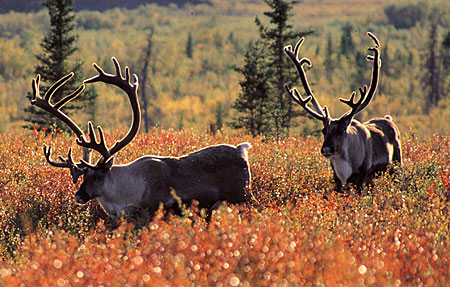The Alaska Department of Law filed a formal request for a hearing to challenge the Alaska Superior Court’s recent determination that the Department of Fish and Game acted in bad faith by adopting and implementing an emergency regulation for bear removal in support of the Mulchatna caribou herd.
The court’s May 12 ruling followed a temporary restraining order issued earlier, halting predator control efforts initiated under a regulation adopted by the Board of Game.
The emergency measure by the Board of Game was aimed at reducing predation by bears on the declining Mulchatna caribou herd, a critical resource for rural subsistence users in western Alaska, which has been dramatically reduced in the past decade. In 2016, the herd was estimated at around 27,000 caribou. As of 2025, the population is around 15,000 caribou, well below the department’s minimum population objective of 30,000.
Attorney General Treg Taylor defended the State’s actions, stating that the Fish and Game operated within its legal and constitutional boundaries. He emphasized that the agency followed all applicable laws and judicial directives, asserting that the characterization of the State’s conduct as bad faith was unfounded.
Alaska Department of Fish and Game Commissioner Doug Vincent-Lang echoed this defense, characterizing the accusations as harmful to the department’s credibility.
He highlighted the program’s support among local communities and its early signs of success, including increased calf survival rates. Vincent-Lang underscored the Department’s compliance with the Court’s orders and affirmed the State’s intent to seek legal remedies to resume the program.
“As the filing and affidavits show, neither I nor the Department acted in bad faith in authorizing predator control activities to rebuild the Mulchatna caribou herd,” said Vincent-Lang. “Such accusations are baseless and attack the credibility of the Department. Our predator control program, supported by local users, communities, advisory committees, and the Alaska Federation of Natives, had already shown success with improved calf survival and herd growth.
Stopping this effort in its third year puts that progress — and our commitment to rural subsistence users—at risk. We are complying with the newly released order but will pursue legal avenues to restore this program, which is clearly authorized under Alaska’s intensive management statute.”
The controversy centers on a five-hour hearing held on May 6, during which the Superior Court declined to evaluate the legitimacy of the emergency regulation, citing jurisdictional limitations.
The court’s May 7 Order explicitly stated that it did not prohibit predator control efforts and did not address the validity of the emergency regulation itself.
On May 9, the State informed both the court and plaintiffs of its intent to proceed with bear removal activities under the still-active emergency regulation. These efforts were halted once the court issued the temporary restraining order.
In its May 12 ruling, based solely on the limited record from the May 6 hearing, the court concluded that the State acted in bad faith. However, the State argues that the court’s decision was premature and based on an incomplete record, without evidence or examination of the emergency regulation process.
Emergency regulations in Alaska are governed by distinct statutory provisions and remain valid for 120 days. The State maintains that plaintiffs had not formally challenged the regulation’s legality through the current case or separate legal action. The court also did not evaluate the Board of Game’s emergency finding before concluding that the State’s actions were irrational and arbitrary.
The State’s latest filing seeks a hearing to present excluded information, including the statutory authority for the emergency regulation, the subsistence importance of the Mulchatna caribou, and whether the emergency regulation’s validity was ever properly before the Court.
A decision on whether the court will grant the requested hearing remains pending.
